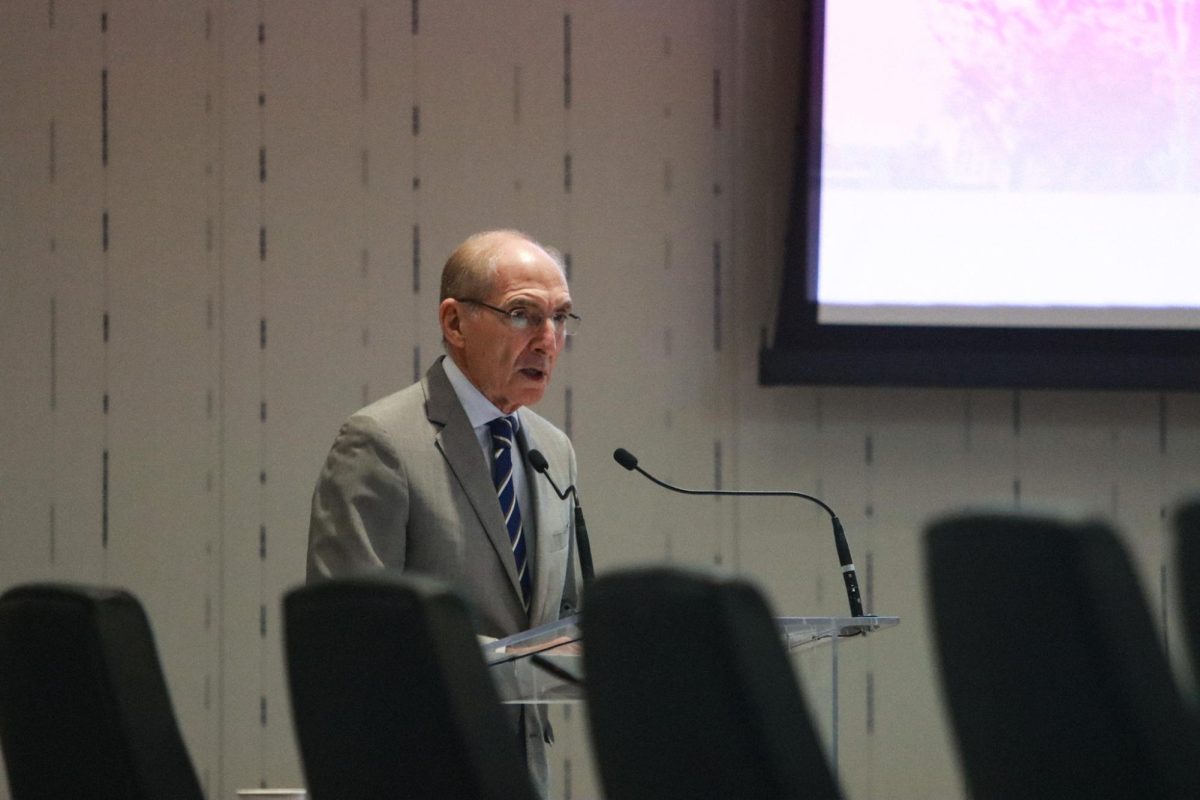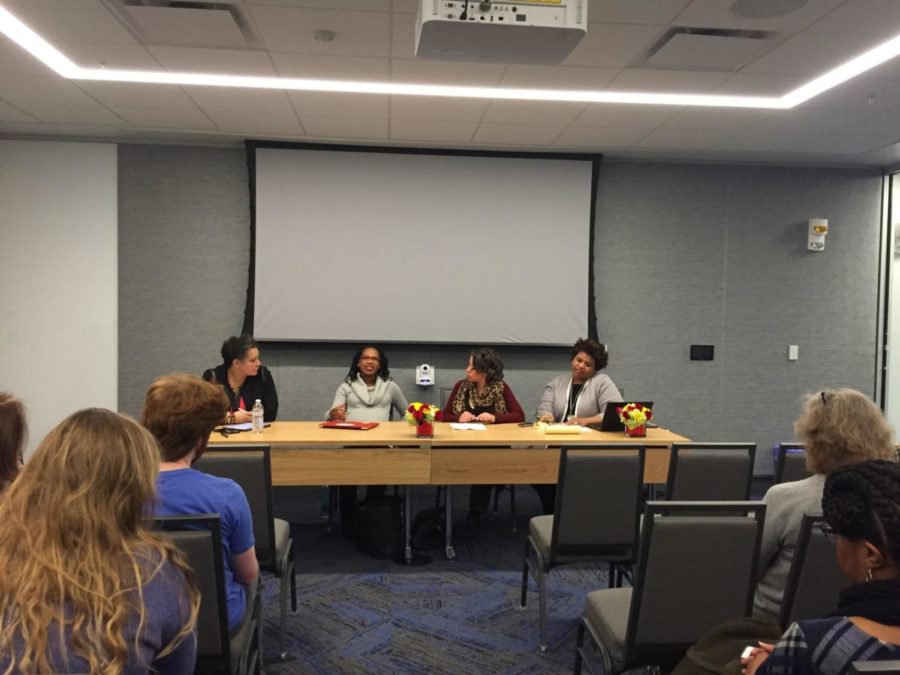Panel addresses what it means to be a black woman in politics
Nikol Alexander-Floyd, Nadia Brown, Evelyn Simien and Wendy Smooth talk about the experience of being black women in politics.
March 8, 2019
Intersectionality has been a hot topic surrounding politics in the past few years, but some have known of its importance for a long time.
On Thursday evening in the Gatton Student Center, panelists Nikol Alexander-Floyd, Nadia Brown, Evelyn Simien and Wendy Smooth talked about what it means to be a black woman in politics.
Alexander-Floyd, author and professor of women’s and gender studies at Rutgers University, opened the panel with a discussion about modern feminism.
“Right now the concept of intersectionality is sexy popular,” Simien said, author and professor of political science at the University of Connecticut.
The four women reminisced on their work over the years and reminded the audience that their ideas have not always been as well received as they are now.
“Still we persisted,” Simien said, “and made a conscious, deliberate decision.”
Brown, author and political scientist at Purdue University, then went on to speak about what she calls a “deep dive into a beautiful intersectional mess.” She described how people’s appearance, especially that of black women, can affect how others perceive them politically.
The “politics of appearance,” as Brown called it, can frequently be observed when speaking about black women’s hair. She spoke about different cases of the political and legal ramifications based around hair, such as black women being asked by their school or workplace to change their hair.
“Why is straight hair the gold standard for black women?” Brown asked the audience. “What this all comes back to is that hair matters. In consistent ways, but in different ways.”
Brown continued speaking about how the demographic was always being measured against other groups rather than being seen as individual political actors in their own right.
To emphasize this point, the group also highlighted many accomplishments of black women in politics.
Simien said that in her home state of Louisiana, three black women were mayors of the three largest cities in that state. She continued to talk about these accomplishments and how historic firsts can encourage others and open the door for greater opportunity.
“Even if they lose, their challenge is still significant,” Simien said.
She listed examples such as an increase in black voters in recent years as well as more black women running for office, especially the “highly masculine” office of the presidency.
Smooth, professor of women’s gender and sexuality studies at Ohio State University, focused in on the politics of black women in the age of President Donald Trump. She pointed out voting patterns such as the tendency for white women to vote for Republican candidates and the disparity of black men’s voting compared to black women. She said that contrary to the popular belief, early voting is not just for the elderly, but for young working-class people.
“Those who tend to vote early tend to be women,” Smooth said.



























































































































































